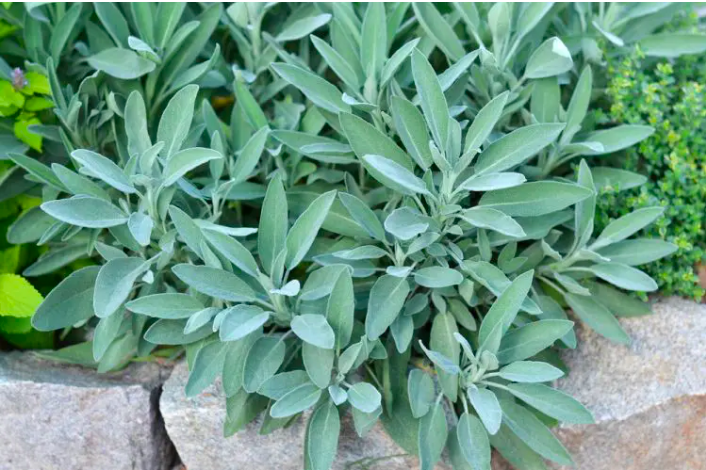An old adage formulated at the transition from antiquity to the modern world stated: ‘Why should a person suffer, when sage grows in the garden?’ The Latins named this plant ‘salvere’ – meaning ‘to save’, precisely to highlight its immense power in curing numerous diseases. In France, this plant is called ‘toute bonne’ – which means ‘all is well’.

Flipping through the pages of old medical literature, we see that sage is recommended for numerous health issues. Arab doctors greatly appreciated sage and believed that its regular use could extend life.
The botanist John Gerard said that sage is particularly good for the head and brain. It sharpens the senses, restores health to those affected by paralysis, and eliminates limb tremors. Other authors maintain that sage strengthens the nerves and extinguishes fever.
Today, sage is used in at least 4 major categories of conditions:
- Cerebral ailments: strengthens psyche and memory, stimulates brain activity, prevents Alzheimer’s disease and senility, relieves headaches;
- Nervous disorders: removes anxiety, restlessness, depression, confusion, fatigue, balances the nervous system, improves emotional health;
- Hormonal disorders: balances the hormonal system, reduces hot flashes associated with menopause, night sweats, and milk production, lowers blood sugar in diabetes;
- Digestive disorders: eliminates flatulence (excess gas), restores lost appetite, and soothes sensitive stomachs.

Another area where sage truly excels is in mouth and throat ailments. It is one of the most effective plants for curing infections of the oral cavity and throat, due to its antibacterial, antiseptic, and anti-inflammatory properties:
sore throat, cough, laryngitis, pharyngitis, tonsillitis, asthma, bronchitis, rhinitis, sinusitis, respiratory ailments with abundant secretions, inflammations of the oral cavity, abscessed teeth, throat ulcers, halitosis, cold, fever.
In these cases, sage is used in the form of mouth rinses and gargles with infusion. Dr. Rudolf Weiss recommends a mixture of 10 ml of sage tincture and 10 ml of chamomile tincture for mouth and throat ailments. The tinctures are put in a glass of water, mixed, and used for mouth rinses several times a day, even hourly if needed.
What science says about sage
Most of the ancient uses of sage are today scientifically confirmed. Several studies have shown that sage stops sweat production in people with hyperhidrosis (excessive sweating) and reduces night sweats and hot flashes in menopausal women.
Sage extract and oil can reduce a substance in the brain called acetylcholinesterase, which may explain the plant’s effectiveness in alleviating memory disorders and excessive sweating.
Those suffering from excessive sweating can try drinking sage tea (prepared from 2 tablespoons of dried plant boiled for 10 minutes in a liter of water, then infused for another 15 minutes). It is drunk after it has completely cooled.
Laboratory studies have also shown that sage has antimicrobial properties and contains antioxidant compounds that protect cell walls from damage.
Sage can be combined with rosemary for a brain tonic, with echinacea for mouth and throat ailments, with St. John’s wort for anxiety and mood improvement.
Dr. John Heinermann says that sage is good for all kinds of itching, whether caused by an allergic reaction, nervousness, psoriasis, eczema, or poisoning.
Put a handful of fresh, crushed, and chopped sage leaves in 600 ml of boiled water and let them sit for an hour, then strain and use the liquid externally on affected areas of itching. While the skin is still wet, cover it with wholemeal flour (not white) and let it dry. In 10 minutes, the soothing effect will be felt.
Dr. Richard Whelan says it’s good for everyone to test this plant in a small dose at first to see the reactions. For tea, you can use ½ teaspoon of plant, boiled for 5 minutes with 1 cup of water, and for tincture, you can take 10-20 drops per day.
Precautions and contraindications
Sage is contraindicated for pregnant and breastfeeding women, people with epilepsy or nephritis. Diabetics should constantly check their blood sugar levels during a sage cure


